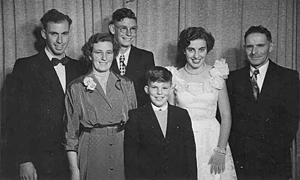Ernest Beguely - a New Zealander at Brocton Camp
Early life
Ernest Sydney Beguely was born in Auckland, New Zealand on 11th July 1895. As one of five children Ernest grew up in the busy restaurant and catering business which his father ran. Leaving school early in 1908 he followed the family tradition starting work as a kitchen hand. By 1915 Ernest had risen to become chef on the SS Victoria plying the Trans Tasman route between Hobart, Melbourne and Auckland.
Military career
Ernest enlisted in the New Zealand Expeditionary Force in June 1917, giving his civilian occupation as ‘driver’. Basic Training followed at the Trentham Military Camp in New Zealand. After training the force embarked for Egypt on the SS Willochra arriving in Suez on 31st March 1918. Ernest’s unit underwent further training in Egypt before sailing for Southampton on 4th July 1918. While en route Ernest continued to practice his skills as a shipboard chef cooking for his comrades.
Arriving in England on 17th July 1918 Ernest was posted to Brocton Camp on Cannock Chase where further training was provided in trench building, rifle and bayonet practice. Ernest wrote home to his mother while at Brocton telling her ‘…I am in the best of health and having a good time at Brocton Camp‘. He joined D Company, 1st Battalion of the 3rd New Zealand Rifle Brigade in September and his pride at becoming a member of the unit is palpable. In the same postcard he wrote ‘I am not in the infantry now, I belong to the No. 3 Rifle Brigade… they call this brigade the Dinkums or the pride of the No. 3 Army.’ According to his army pay book Ernest earned 5 shillings a day, of which he sent 4 shillings back to home to his family.
On 21st September Ernest’s unit was posted to the Cambrai sector of the Western Front in northern France. Following reports of German forces withdrawing from the area around Lesdain, 10 kilometres south of Cambrai Ernest’s platoon was ordered to take and hold an area of high ground close to an old mill. Owing to the urgency of the situation minimal artillery and mortar fire was provided and, when the position proved to be occupied by a large contingent of troops supported by machine guns, D Company was forced to retreat. During the action Ernest was badly wounded in the leg. Following his injury he was forced to feign death to avoid being bayoneted by enemy troops but was later able to call out to stretcher bearers despite being extremely weak through loss of blood.
Following treatment at a field hospital Ernest was evacuated to the Canadian General Hospital at Etaples on 12th October. He was subsequently transferred to the Endell Street Hospital in London where doctors managed to save his leg before he was sent to a recuperation hospital elsewhere in the capital. Ernest remained in London until 12th March 1919 when he boarded the hospital ship SS Maheno bound for Auckland. He arrived back home to a hero’s welcome on 22nd April 1919.
After the war

Ernest (far right) on the occasion of his daughter's 21st birthday After his return Ernest became an apprentice tailor in a clothing company in Ponsonby, Auckland, close to the family home. It was in this factory that he met his future wife, Linda and they were married in December 1926. Four children followed and Ernest rose to become the General Factory Manager; a position he held until his retirement in 1958 through ill health.
Like many of his comrades, Ernest spoke little of his experiences during the Great War and today his family know little of his war record apart from what his Brigade diaries record. Ernest Sydney Beguely died in 1962 and we are grateful to his youngest son Syd for supplying the images and information which make up this panel. Syd wrote of his father ‘Although we know little of dad’s early life and war experiences, we do know that he was an ordinary New Zealander who responded to the call of King and Country to undertake extraordinary duties for the preservation of freedom and the way of life which we enjoy today. We are grateful for his commitment to duty’.
|

